Dozens of children in Moldova fled their countries. They came together with their parents as they escaped the bombing and persecution and wanted to find a safe and quiet place. Most foreigners, who applied for asylum or humanitarian protection lately, are from Syria and Ukraine, Pakistan, Afghanistan and several African countries. Once in Moldova, many refugees complain about bureaucracy in state institutions and mentality of society, they are discriminated just because they look different. But some of them do not give up and they fight stereotypes and get better results than their peers in Moldova.
VIDEO// How are children of refugees welcomed in Moldova
Child from Syria is the best pupil at Romanian
Mumtaz Sultan 14, from Syria came to Moldova together with his parents four years ago. It was hard for them at first because he did not speak any Romanian or Russian. The boy says that he was treated with contempt when he went to a school in Chisinau. "I was in 5th grade and in the first semester I went to a school in Chisinau and I was discriminated. I know why I was discriminated - because I did not know the language and I looked different. Then, we settled with my family in Mereni village. They welcomed us better here. On first school day, pupils asked me about weather and recent events in Syria. I made many friends", says Mumtaz.
After the first year of study, Mumtaz amazed everyone when he recited the poem "Our Language" in an event organized by the school. There followed enviable results at contests, including at Romanian. "I was one of the best pupils at school. It's obvious because I am not a Moldovan, but I have good marks as other pupils", says the boy. His mother, Dima Deira is proud of her son's achievements. "He began to participate in competitions at school. Initially, he was the best at English and this year he participated in the district contest and ranked 4th. Then, he went to other competitions in the lyceum and ranked first. He has a lot of diplomas and he participates in contests every year. He got the first prize at Geography, Computer Science, Chemistry and English and second prize at Maths and Romanian", said his mother.
Integration of refugee children, 4 steps
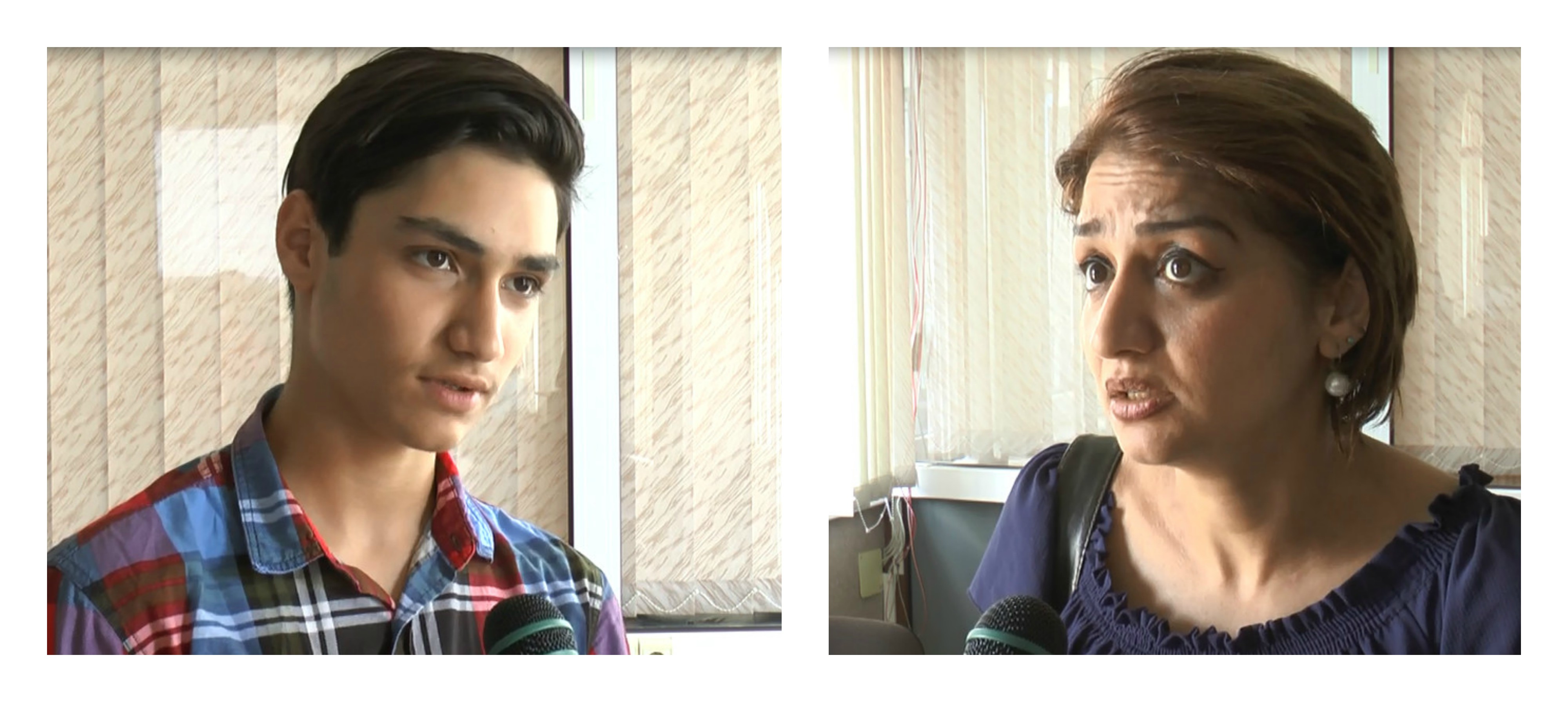
Deiri Dima said that she decided to stay in Moldova because she studied medicine here. After graduation, she returned to Syria, where she started a family but the war destroyed everything that she gained over a period of 13 years of marriage, two pharmacies and a horse farm. She hoped that she would return to Syria, but the war continued, so she was forced to seek asylum in Moldova. Deiri said that she found her second home in Moldova, especially for her son. "I want that Mumtaz to study here because Moldova provides quality education. I let him marry a Moldovan girl, why not? He will get the Moldovan citizenship within a year. Children get citizenship within five years and their parents - within eight years. Perhaps, I will return to Syria, I do not know yet, but Mumtaz will remain here. His future is in Moldova", says Deiri.
Deiri Dima: „refugee children can easily integrate in Moldova, if parents take the right steps:
Child must attend courses to study Romanian;
Child should get access to medical services;
Child should have a stable residence;
Child should immediately attend kindergarten or school and follow the process of integration;
Adaptation might be difficult if they change their residence
Lidia Cretu, director of the Lyceum” Emil Nicula”, the institution where Mumtaz studies, said that the boy’s success was owed to his daily efforts and teachers’ involvement. She says that when he came to Mereni village, he did not speak any Romanian, but in just several months, he spoke it almost fluently. ” I am sure that he will be successful in his new school. It is a pity that he cannot study in our school”, says Lidia Cretu. The director claims that the authorities should identify possibilities that once the refugee children are integrated in a school, they should not be forced to change residency. According to her, this creates new difficulties of adaptation for children who have to change many schools in a short period of time.
Story of refugees can be a success
Another teenager called A Ali Yuser came to Moldova together with her parents 4 years ago. Her family tried to settle in many countries for years, but the last decision before Moldova was Dubay – an expensive town for a refugee, said the girl’ s mother, Karim Amalid.
Yuser,11, spoke just Arabian, when she was enrolled at the Theoretical Lyceum „Tudor Vladimirescu” and needed a preparatory year to continue the studies. „ I knew a bit of English and French. I learnt Romanian and I started to teach my parents Romanian”, says Yuser. Currently, the girl speaks Romanian like any other teenager of her age and she has many friends at the school where she studies.
Yuser together with her mother comes to charity Center for refugees several times per week. The center is in Buiucani sector of the capital. Karim teaches Arabian to adults and children and her daughter speaks with other children during lessons of painting and origami. Among her pupils, there are some Moldovans, mainly children.
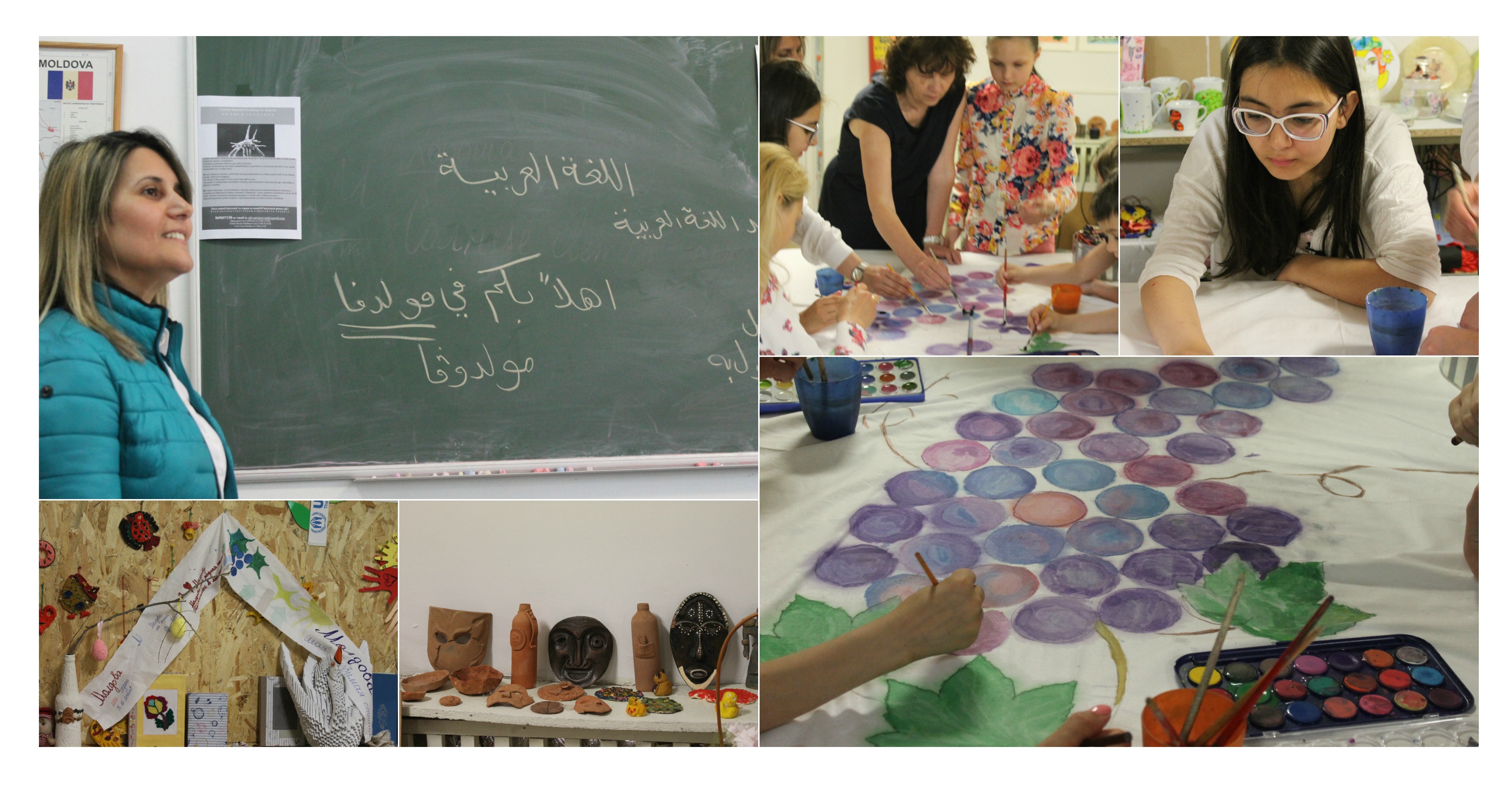
The story of this family is a success in the life of refugees. That is because they succeeded to integrate in our country. As they did not find jobs for their specialty, parents enrolled on the faculty. Father studies aviation and mother, 44 is a second year student at the faculty of architecture and urbanism at the Moldova Technical University. In their home country- Iraq, Karim was teacher of Maths.
The biggest problem of the family is that they cannot leave the country. Contrary to the assurances of the authorities, the travel document that was released earlier this year does not allow them to leave the country. "We tried to visit Romania, but we were stopped at the border, we were denied access to the neighboring country," says Karim. The family plans to stay in the country for many years, because it is "a peaceful and friendly land for us."
Mereni, place of refuge for people from other countries
Until they find a job and manage to rent a home, refugees are housed temporarily in shelters for a period of six months, but the period may be extended. One of these centers is in Mereni village, district Anenii Noi. The UN Refugee Agency (UNHCR) has built here a house with four apartments for families persecuted by wars or authoritarian regimes. Deputy-mayor Aurelia Rosca says that people who lived in this center proved that foreigners can integrate easily, especially if society is tolerant. “There were families with 3-4 kids, very good families who have integrated because they had children at school and kindergarten and they had to contact with people. Initially, they communicated with gestures then, they studied Romanian. These families greet us, they actually bow. They are open-minded and they participate in all cultural events ", said the deputy mayor.
Aurelia Rosca says that the refugees settled in Mereni enjoy the support of Mayoralty until they manage to stand on their feet. "I take care of all refugees who come to Mereni. I am their mother, father and godmother. I know all their names, I know their problems. They come to me because the mayor is busy. We help them to complete a job application because they do not know the language, to gain access to free healthcare, to get exemption for food in schools and kindergartens and benefit from social allowances ".
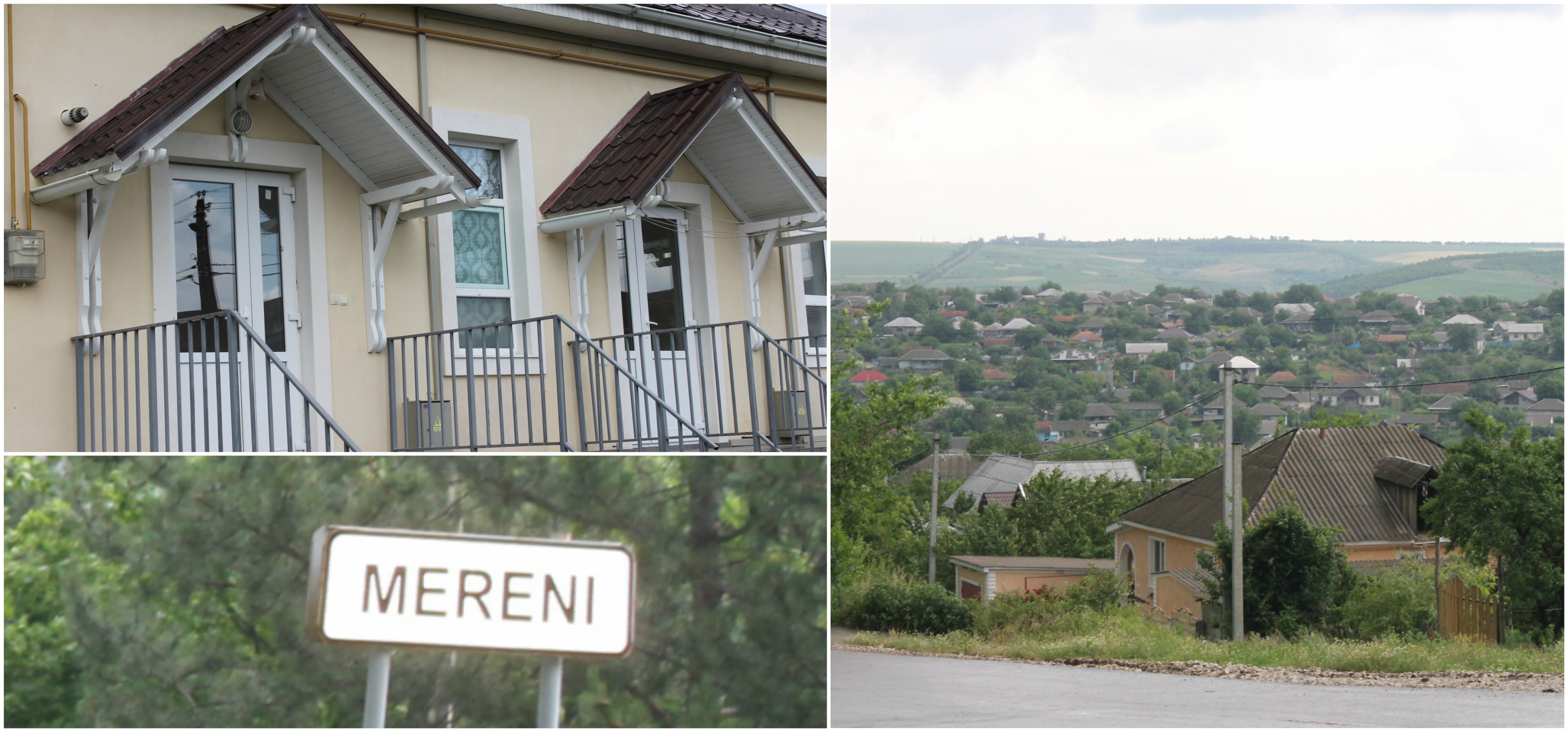
An allowance on which you cannot live
Among measures of support which the state Republic of Moldova grants to refugee is an allowance for children. Dumitru Russu from Nondiscrimination Coalition argues that there is a large discrepancy between the compensation for these children and the sum that establishes the minimum of existence. "Allowance for children is 750 lei. If we talk, for example, about the children aged 7 to 17, according to the National Bureau of Statistics, the subsistence minimum is 1,800 lei. Of course, the state tries to take other steps to minimize expenditures such as providing a place to live or other benefits, but in fact, we place these children in a risk situation - a risk by which we make them dependent on their income. It is known that a major problem is refugees’ employment. And then financial problems are essential to survive", says Russu.
According to him, last year, the Nondiscrimination Coalition received complaints from refugees that the authorities put jams in obtaining some forms of protection. "We hope, in particular on behalf of society and authorities, to show indulgence and tolerance for these people because unfortunately, the society often takes the same attitude for a foreigner and a terrorist. Let us not confuse the word foreigner with criminal or terrorist etc", concludes the representative of the Non-discrimination Coalition.
Mentality, an almost insurmountable barrier
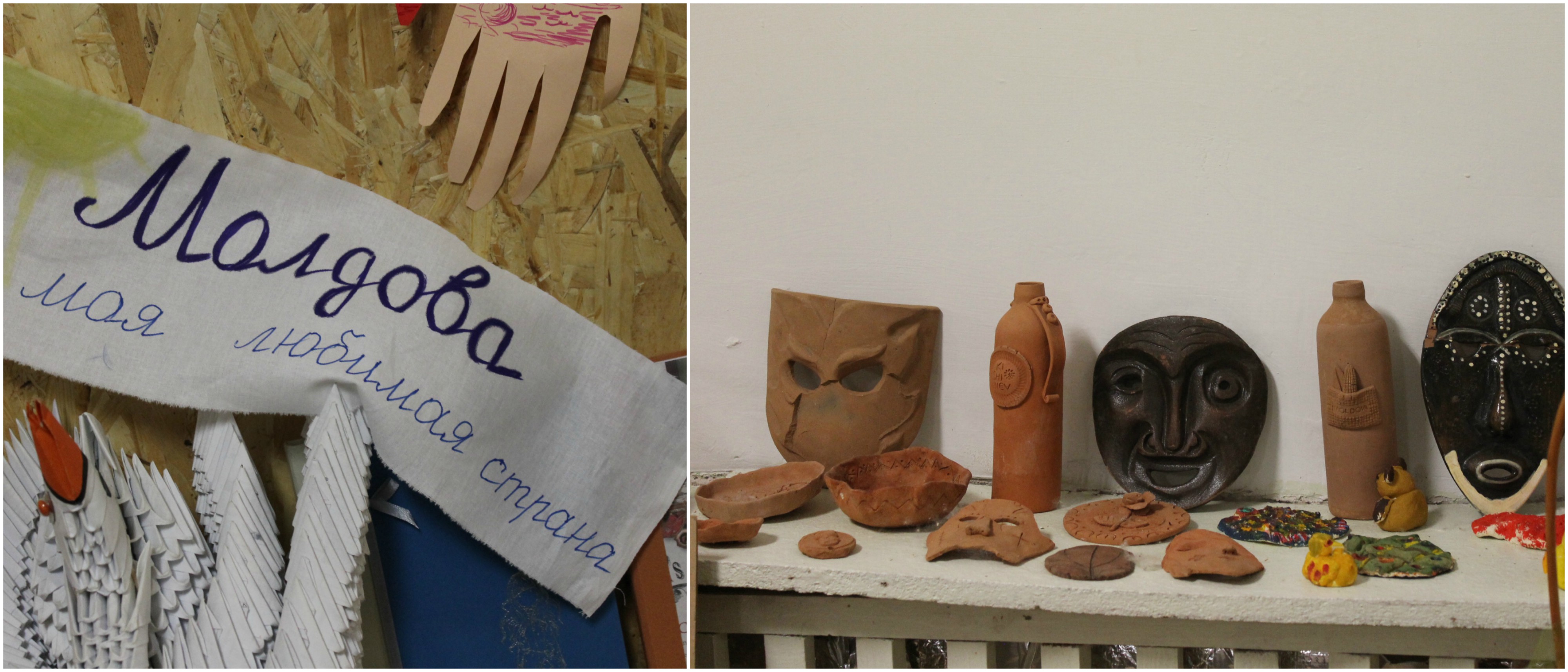
There are different problems of integration, says Keita Abdramane, president of the Society for protection of African children in the Republic of Moldova. The man has been living in Moldova for 30 years and says that over this period of time he saw many cases of foreigners’ discrimination. „ This comes from the family, it depends on education. I saw how parents encourage their children to point their fingers at others. They say: „ Look, here is the chocolate man”. It is humiliating”, says Keita Abdramane.
He says that myths about migration should disappear, so that people, regardless of the country of origin must be equally treated. “There is discrimination in Moldova. The law provides protection, but actually, there is a difference between ours and yours. For example, when you seek a job and you phone and they hear your voice, they have immediately an answer. We have studies and skills like other people ", said Keita Abdramane. He says there have been cases when children once discriminated, they did not recover and when they reached full age, they have left the Republic of Moldova.
"A little girl was humiliated in kindergarten; she went to a sports school in Botanica sector and she was always discriminated. When she grew up, she went to Belarus. It happened two years ago. Her mother tried to return her back, she asked the help of the Embassy of Belarus, but the girl felt humiliated and ran away. She could learn and work here because she had very good conditions. Her mother had two apartments, but the girl felt discriminated. In France, for example, I have many friends of color and there nobody is finger-pointing. I hope that Moldova will reach the level of no discrimination", concludes Keita Abdramane.
”Compassion and tolerance are necessary more than ever”
The representative of the UN Refugee Agency (UNHCR) in Moldova, Traian Turcanu says that lately they receive more xenophobic messages in the world, amid the wave of emigration generated by the war in Syria. "It is a very serious phenomenon... It is a dangerous thing when political leaders both in Europe and in the US, candidates for presidency use tough rhetoric to refugees, especially for those from Islamic countries .. .I come with a message of tolerance and compassion for those who come from Muslim countries and seek protection. The society of the future is certainly multiethnic, multicultural and multi-religious. It's something that we should accept because the architecture of international security changes. Moldova is not an exception ", said Traian Ţurcanu.
VIDEO// Press club dedicated to refugees in Moldova, June 10 2016
On the eve of World Refugee Day, UNHCR representative in Moldova called on for compassion and tolerance: "We must not allow xenophobia to overshadow reasoning. We must understand that the institution of asylum comes to save lives, not to do politics. "
Refugee children, in a petition for the UN
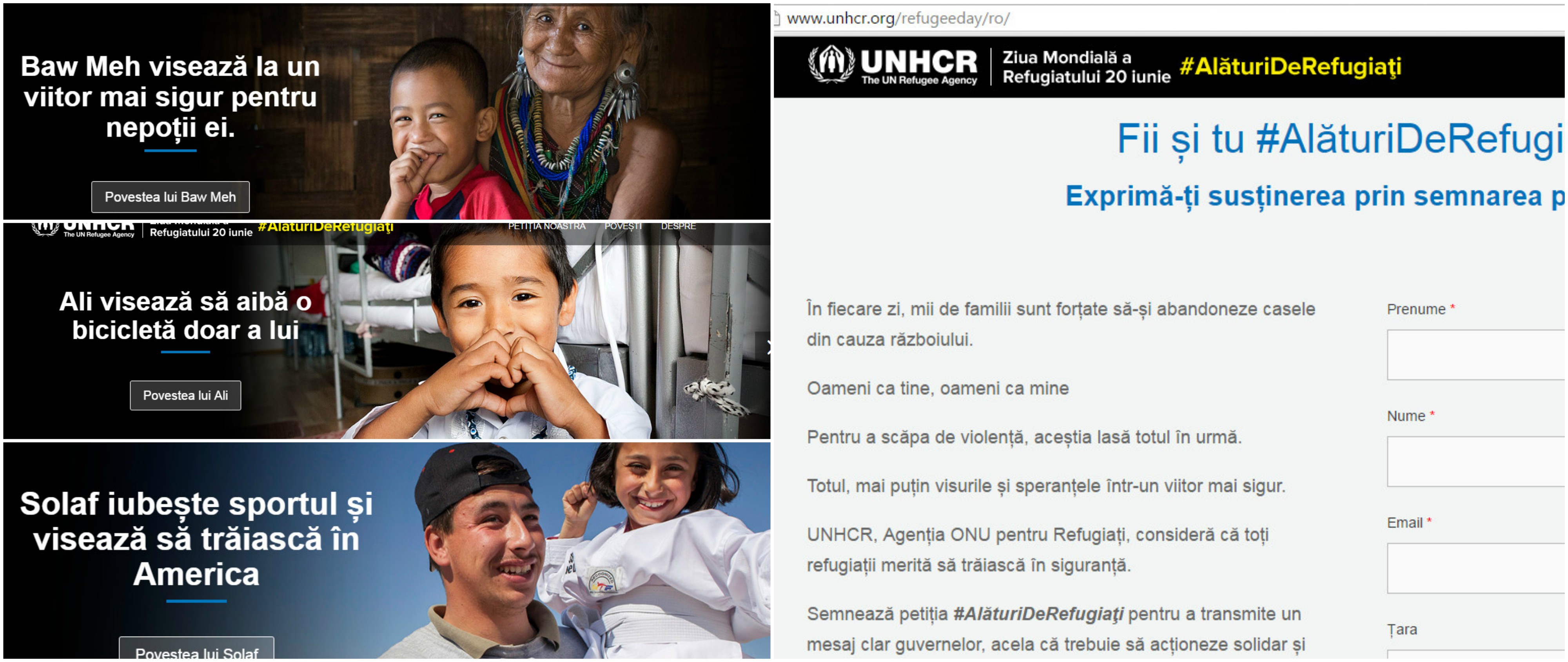
In September, a petition will be sent to the UN General Assembly at the opening of the UN Global Summit for Refugees and Migrants. The petition is posted on the UNHCR website and can be signed by the public and thus it sends out a clear message to governments that they must act jointly and assume their share of responsibility. "Refugee crisis is actually a crisis of solidarity, a crisis of lack of understanding between countries," said the UNHCR representative in Moldova. The petition calls on governments to ensure every refugee child's right to education, a safe shelter for every family and the right to work for every refugee or the chance to learn new skills to bring a positive contribution to their community.
Who takes care of refugees in Moldova
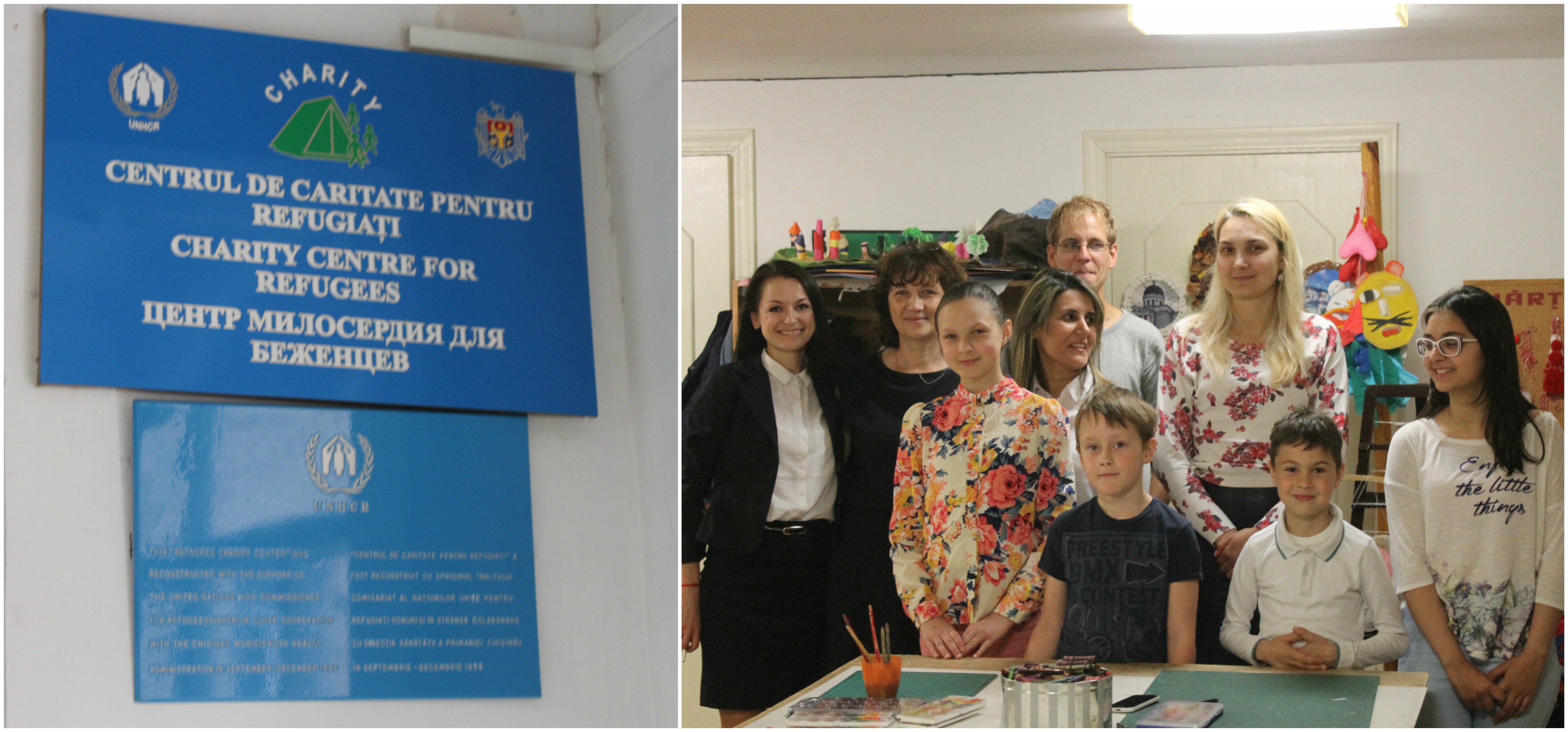
In Moldova, foreigners who seek shelter are assisted by the Bureau for Migration and Asylum and the UN Refugee Agency. But not everyone can get status of refugee. Initially, these persons are granted emergency protection, and then they check if their life and safety are endangered in their home country. Children are treated as a priority and they enjoy the same rights as minors in the host country, first of all, they have free access to education and health services. Similarly, they are provided food products, temporary accommodation and the opportunity to study Romanian.
In Moldova, there are three regional centers for foreigners’ integration – in Balti, Cahul and Chisinau. Olga Poalelungi, head of the Bureau for Migration and Asylum says that Moldova does not have too much experience in granting right to asylum. In autumn, we will celebrate 15 years since the ratification of the Refugee Convention, and the term "integration" was introduced in 2011, when the EU came up with a request in the context of visa liberalization. Moldova took over the British model: it involves both the refugees and the state with an integration program. "It is important not only to receive refugees but to ensure quality standards. Here is the key issue, to see which are capabilities to react properly with accommodation, water, medicines etc.", said Olga Poalelungi.
In turn, Paknehad Djavid Ahmad, director of the Charity Center for Refugees claims that it is very difficult to say what Moldova should do for refugees, while the residents of Moldovan face with difficulties. “Difficult life has a direct impact on people from abroad, including on children. The higher is the life quality, life is simpler and easier, which is not specific for Moldova", said Paknehad Ahmad Djavid.
New law for refugees, voted in first reading
Parliament has recently voted in first reading a draft to amend the legislation targeting refugees and asylum seekers, based on European practices. The document was drafted by the Interior Ministry and contains new terms in the procedure of examining applications for international protection. Special emphasis is placed on cases involving minor asylum seekers. Also, the powers of the councilor of eligibility are extended, the mechanisms that assure the minors’ protection are finalized, mainly of those unaccompanied and the concepts of "humanitarian protection" and "international protection" are clearly defined. In addition, the bill increases the travel limits of validity up to 5 years for refugees and beneficiaries of humanitarian protection - to 3 years.
Number of refugees in a continuous growth
World Refugee Day is marked every year on June 20. According to UN, almost 60 million people have to flee their houses because of war and take refuge in other countries.
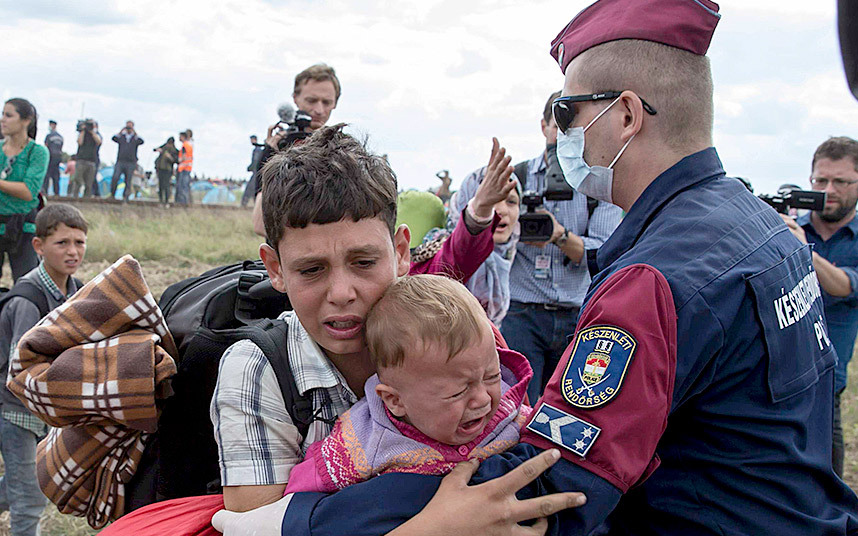
In Moldova, the number of refugees is growing, especially after armed conflicts in Syria and Ukraine. Currently, our country has 600 people with status of refugee or humanitarian protection from Ukraine, Syria, Afghanistan, Pakistan and some African countries. 40 percent of people requesting a form of protection are children, women and elderly people.
The investigation was carried out within the project "Advocacy for Child Rights” implemented by the Center for Investigative Journalism (CIJM) with the support of UNICEF Moldova. The opinions are of the authors and editors and do not necessarily reflect the policies or views of UNICEF.
Comments